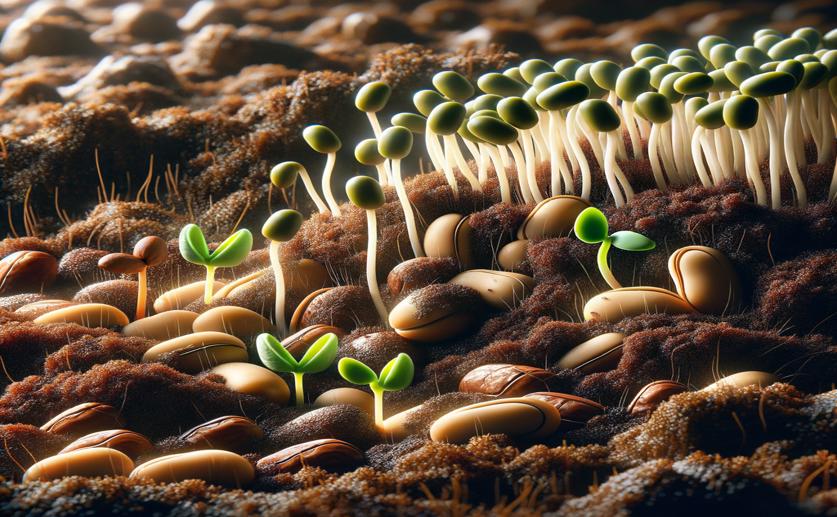
Boosting Mung Bean and Mustard Seed Germination with Special Soil Bacteria
Jenn Hoskins
6th September, 2024

Image Source: Natural Science News, 2024
Key Findings
- The study from Chaudhary Charan Singh Haryana Agricultural University found that biopriming seeds with sulphur-oxidizing bacteria can significantly enhance seed germination and plant growth
- Pantoea dispersa SOB2 was the most effective, improving germination rates and seedling growth for mustard and mung bean
- Other bacteria like Bacillus velezensis SN06 and Bacillus cereus SN20 also showed benefits, such as enhancing seedling growth and improving soil structure
AgricultureBiochemPlant Science
References
Main Study
1) Biopriming with multifarious sulphur-oxidizing bacteria improve in vitro Vigna radiata L. (mung bean) and Brassica juncea L. (mustard) seed germination.
Published 5th September, 2024
https://doi.org/10.1007/s12223-024-01195-8
Related Studies
2) Characterization of Biomineralizing and Plant Growth-Promoting Attributes of Lithobiontic Bacteria.
3) Evaluation of plant growth promotion properties and induction of antioxidative defense mechanism by tea rhizobacteria of Darjeeling, India.
4) Seed Treatments with Microorganisms Can Have a Biostimulant Effect by Influencing Germination and Seedling Growth of Crops.
5) Inoculation of Bacillus spp. Modulate the soil bacterial communities and available nutrients in the rhizosphere of vetiver plant irrigated with acid mine drainage.



 24th August, 2024 | Greg Howard
24th August, 2024 | Greg Howard